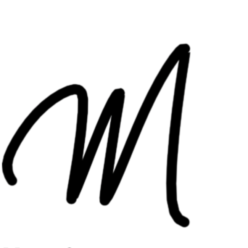I wrote this article in 2013 at the request of Parul Mittal for her site on education, Rivokids.
In conversation with someone I’m meeting for the first time, I often find myself saying, “I am a mathematician.” Perhaps the most common response I get from my listener is this: they immediately tell me all about how good or bad they always were in math. I smile and I nod – of course! What else am I going to do in the middle of a party? But the truth is this: the thing that almost all people think they are good at, or bad at, or afraid of, or impressed by – that thing is not math.
How is this possible – a misconception on a scale this massive? Let’s go back to the party conversation. If we talk some more, I might find myself saying this: “My mother is a writer.” This time the picture created in the minds of my listeners is an accurate one. My mother writes, yes, but obviously not instruction manuals or advertising copy. Writers write books, novels, plays, perhaps – and everybody knows this. Their work is creative and difficult; they create works of soaring human imagination; they explore the breadth of human experience! Duh! Well, it’s the same with professional mathematicians. Calculations are to us what grammar is to writers: we need that stuff, but it’s not the point. Innovation and creativity are very much at the heart of good research.
The reason this great playground remains unexplored through the 12 to 14 years of our schooling is this: mathematics is incredibly useful. It is the language of the universe, the grammar of science – and all that stuff you’ve probably heard before. It’s also wildly practical when you’re trying to figure out how much to tip in a restaurant – or, if you own the restaurant, how much money you’re really making after you’ve paid your rent, your staff, and your taxes. This second, mundane kind of usefulness is why we learn math in school – we need to be quantitatively competent in the world. And the first kind of usefulness — the fact that it provides the technical grounding for so many disciplines — is why you have to study quite a lot of math in college if you are going to be a scientist of any kind, or an economist, or an insurer.
In school the usual 12-year curriculum traverses this arc of usefulness – starting from arithmetic in the early years and becoming rather technical in the final years, so that the training of the future engineers is really begun in school.
If you are a mathematician, however, this multi-faceted usefulness is not what draws you to your discipline. You wake up in the morning and get to work for the same reasons that the writer does: you are driven to create something. You do it with your mind, with your intellect, and you create something which others will understand. Pure mathematicians are as a rule aware of but indifferent to the usefulness of what they do, the most famously vocal being perhaps GH Hardy.
(link: https://www.americanscientist.org/article/in-defense-of-pure-mathematics )
They do what they do because they find it beautiful, difficult, frustrating, satisfying, and addictive. Perhaps I’m guilty of buying into the romance of mathematics here, but I do think everyone who got into this game in the first place feels this romance — at least to some degree. If you choose to study mathematics in college, you’ll get to step out of the “usefulness” environment and experience this romance for yourself.
